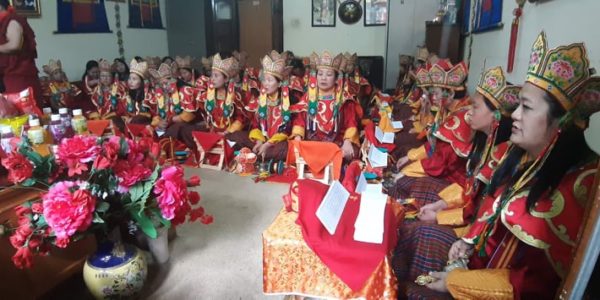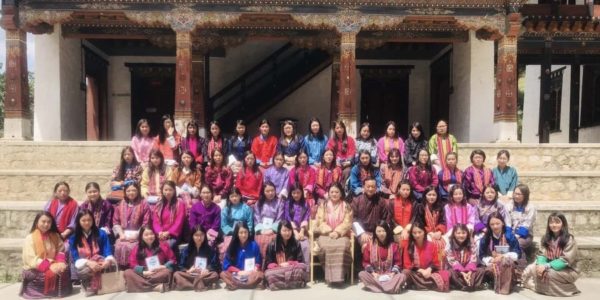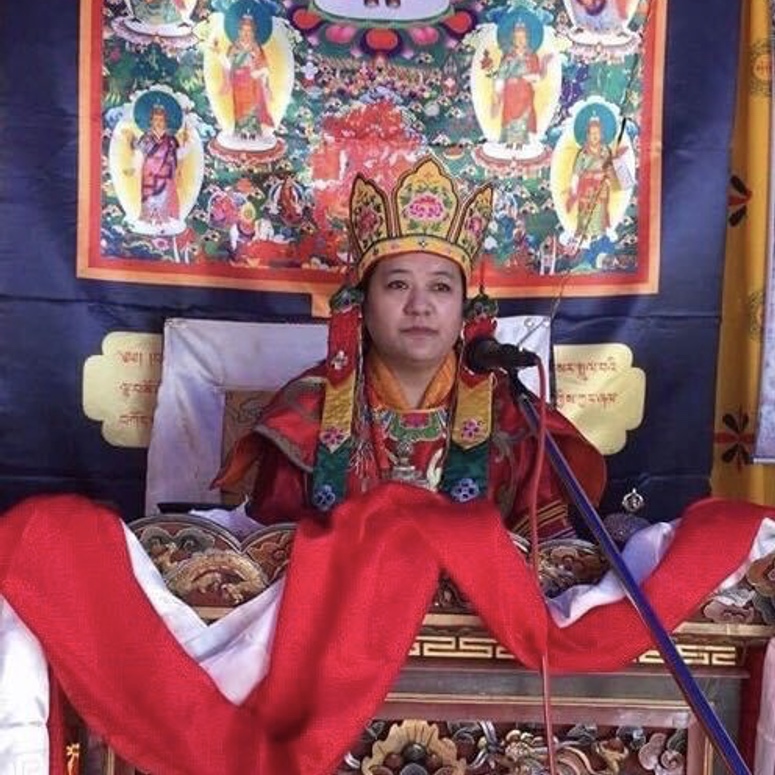The Kurukulla Foundation is a group of female practitioners established by Khandro Tsedum Lhamo, who regularly gather for tsog offerings to Red Tara.
Kurukulla literally means ‘Magic Vidya’ (Tib. རིག་བྱེད་མ་) and is the name of a Dakini – one of the 21 Taras, alongside its emanations: Namgyel Vidaya and Jigshe Vidaya. In most documents she is described as red in colour, attractive and having a furious expression with an angry smile. There are many biographies of Kurukulla, practices, mantras, prayers and praises mentioned in Kanjur, Tanjur, and other treatises which belong to different Buddhist lineages. Choosing Kurukulla to be one’s protector and accomplishing her practice leads to attaining the siddhis of all Taras.
The Kurukulla hidden teachings (termas), discovered in cone shell-shaped stones by Khenpo Jigme Phunsok in a meditation cave of Ketsang, located in Dhedol and recognised by local people as a sacred rock-cavern, were one of the greatest gifts to his followers. The ritual described in the tantra has profound meaning. Meditating on Kurukulla and following pith instructions allowed many practitioners reach the fruition of the practice.
Since 1996, these terma teachings have been spreading from Bumthang to promote peace in Bhutan and the entire world. Khandro Tsedum Lhamo, encouraged by great masters like Tang Chojam Lama Dupwang Peama Lunyang, Nyima Long Lama Padma Tsewang, and Tang Rinpoche, has been giving teaching on Kurukulla on Dakini days – every 25th day of the lunar calendar.
In 2016, Chimé Rigdzin Rinpoche from Larung Gar, very pleased with Khandro’s activities, kindly offered his guidance and suggestions for intensive Sadhana session of Kurukulla. Rinpoche gave it a title: “The Joy of Red Garden”. Rinpoche also suggested that the ritual object used for Mandala offering should also be red in colour, just like other decorations, practitioners’ dresses and ornaments, containing red flowers. These rituals have been continued and all members of the group follow the advice give by Chimé Rigdzin Rinpoche. Khandro Tsedum Lhamo preserves that tradition, and has been authorised to give initiations and explanations these teachings and rituals, which have been continuously practiced with with great joy and faith.



